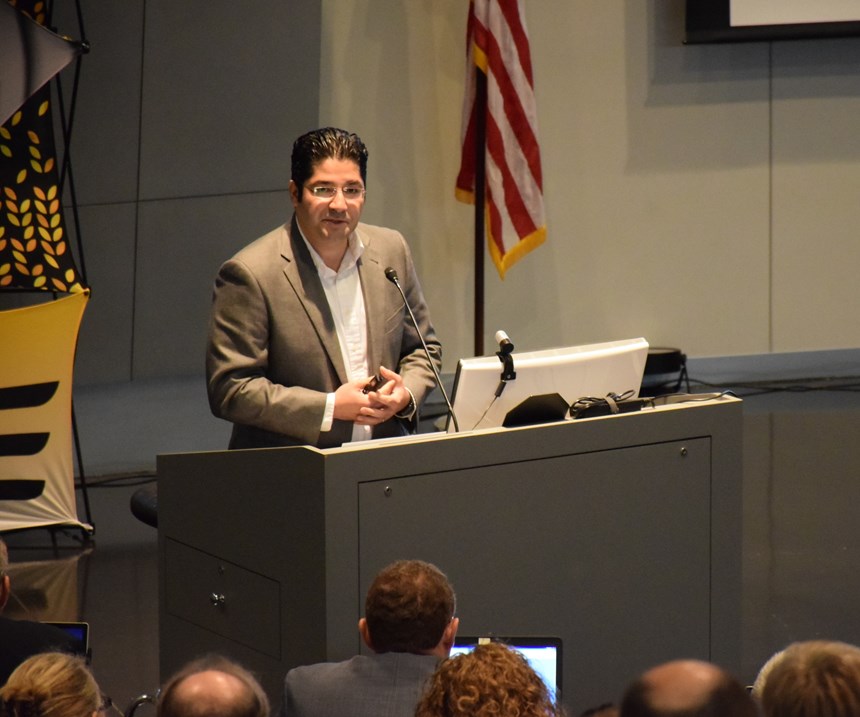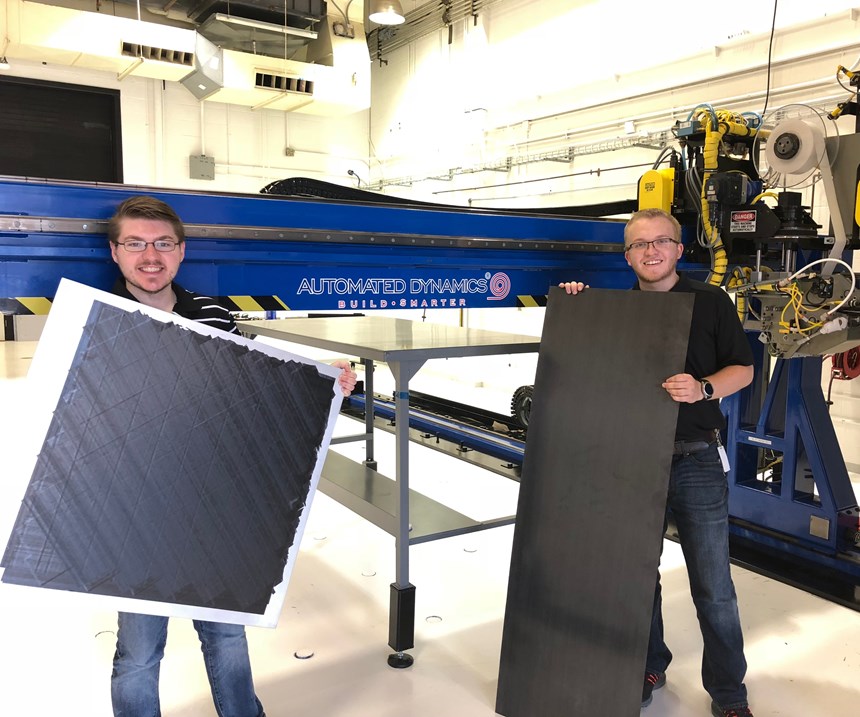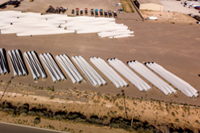NIAR makes strides in additive manufacturing and automated composites technologies
The National Institute for Aviation Research joins ASTM International’s Additive Manufacturing Center of Excellence and also makes progress in ATL efforts.
The National Institute for Aviation Research (NIAR, Wichita, KS, US) is an industry-focused research institute at WSU, home to one of the world's leading aerospace engineering programs. As such, NIAR plans to be engaged in the center of excellence's R&D activities, education and workforce development efforts, and other functions and programs.
On Aug. 21 global standards leader ASTM International (West Conshohocken, PA, US) announced that NIAR will join its Additive Manufacturing Center of Excellence as its first "strategic" partner. ASTM International and four founding partners recently launched the center to support R&D that advances additive manufacturing standards, which in turn will drive commercialization of cutting-edge additive manufacturing technologies.
"Building on its strengths, NIAR will lead efforts to qualify additively-manufactured materials and to further strengthen relationships with key aerospace regulators worldwide," says Dr. Mohsen Seifi, ASTM International's director of global additive manufacturing programs. "Leveraging their expertise in R&D, we will develop much-needed standards that will significantly enhance certification in aviation and other industries. We"re thrilled to have the NIAR team on board."
In addition, the newly established Automated Technologies Laboratory for Advanced Structures (ATLAS) at NIAR recently produced its first automated composite panel using a three-axis gantry-style automated tape-laying machine with three-inch tape. Using its pneumatically actuated head to lay down tapes of carbon fiber, this equipment is capable of manufacturing panels up to 16 feet long and 10 inches wide.
Automated manufacturing technologies considerably increase the production rates and reduce part count. Layup of this panel, which would have taken several hours by hand, was completed within seven minutes. This tape-laying machine is one of the first pieces equipment to support NIAR's efforts for developing automated composite manufacturing technologies. ATLAS will soon expand its capabilities for manufacturing large composite structures such as wing spars, wing skins and fuselage sections using industry-standard automated robotic systems and advanced in-process inspection systems.
ATLAS researchers are currently in the process of establishing partnerships with NASA, the Department of Defense, certification agencies, industry, and academia for developing innovative technologies to increase production rates, while creating a data-driven "factory of the future" for managing flexible rates. ATLAS research will accelerate innovation by addressing aerospace manufacturing challenges while reducing cost and managing complexities. Some of the initial research projects will focus on developing a certification framework for structures manufactured using automated technologies in order to accelerate the process for introducing novel materials, advanced joining technologies and advanced processes, which will reduce certification time by ensuring material performance meets program goals.
Related Content
-
A new era for ceramic matrix composites
CMC is expanding, with new fiber production in Europe, faster processes and higher temperature materials enabling applications for industry, hypersonics and New Space.
-
Carbon fiber in pressure vessels for hydrogen
The emerging H2 economy drives tank development for aircraft, ships and gas transport.
-
Infinite Composites: Type V tanks for space, hydrogen, automotive and more
After a decade of proving its linerless, weight-saving composite tanks with NASA and more than 30 aerospace companies, this CryoSphere pioneer is scaling for growth in commercial space and sustainable transportation on Earth.

.png;width=70;height=70;mode=crop)















.jpg;maxWidth=300;quality=90)

